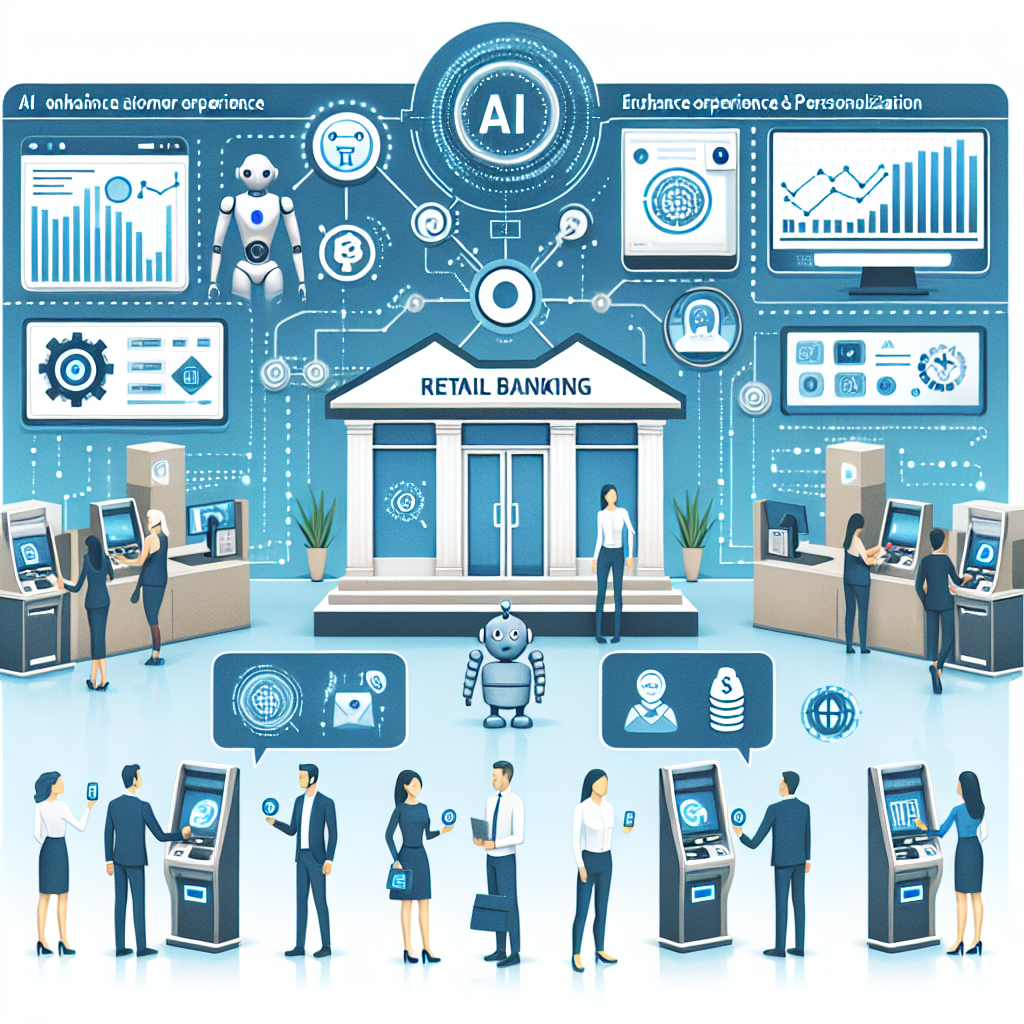Artificial Intelligence (AI) has been making significant strides in various industries, including retail banking. With the increasing competition in the financial sector, banks are looking for innovative ways to enhance customer experience and personalize their services. AI has emerged as a powerful tool that can help banks achieve these goals by providing personalized recommendations, streamlining processes, and improving customer service.
One of the key areas where AI is making a big impact in retail banking is in customer experience. AI-powered chatbots are being used by banks to provide round-the-clock customer support and answer queries in real-time. These chatbots are equipped with natural language processing capabilities, allowing them to understand and respond to customer queries in a conversational manner. This not only helps banks provide better customer service but also reduces the workload on human agents, allowing them to focus on more complex tasks.
AI is also being used to personalize the banking experience for customers. By analyzing customer data and behavior patterns, banks can use AI algorithms to offer personalized recommendations and tailor their services to meet the individual needs of each customer. For example, AI can analyze a customer’s spending habits and offer suggestions on how to save money or invest wisely. This level of personalization not only enhances the customer experience but also helps banks build stronger relationships with their customers.
Another area where AI is being leveraged in retail banking is in fraud detection and prevention. AI algorithms can analyze large volumes of data in real-time to identify suspicious transactions and patterns that may indicate fraudulent activity. By detecting fraud early on, banks can protect their customers’ accounts and prevent financial losses. AI-powered fraud detection systems are constantly evolving and learning from new data, making them more effective at detecting and preventing fraud.
In addition to customer experience and fraud detection, AI is also being used to streamline processes and improve efficiency in retail banking. For example, AI-powered algorithms can automate routine tasks such as account opening, loan approvals, and credit scoring, reducing the time and resources required to complete these processes. This not only improves operational efficiency but also allows banks to offer faster and more convenient services to their customers.
Overall, AI is revolutionizing the retail banking industry by enhancing customer experience, personalizing services, and improving efficiency. As banks continue to invest in AI technologies, customers can expect to see more personalized and convenient banking services that cater to their individual needs.
FAQs:
Q: How can AI improve customer experience in retail banking?
A: AI can improve customer experience in retail banking by providing round-the-clock customer support through chatbots, offering personalized recommendations based on customer data, and streamlining processes to make banking services more efficient and convenient.
Q: Is AI secure for banking transactions?
A: Yes, AI-powered fraud detection systems are constantly evolving and improving to ensure the security of banking transactions. By analyzing large volumes of data in real-time, AI can detect and prevent fraudulent activity, protecting customers’ accounts and preventing financial losses.
Q: Will AI replace human agents in retail banking?
A: While AI-powered chatbots are becoming increasingly popular for customer support, human agents still play a crucial role in providing personalized and complex services to customers. AI is meant to complement human agents, not replace them.
Q: How can customers benefit from AI in retail banking?
A: Customers can benefit from AI in retail banking by receiving personalized recommendations, faster and more convenient services, and enhanced security for their banking transactions. AI helps banks offer more tailored services that cater to the individual needs of each customer.

